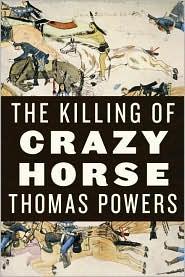

Most ebook files are in PDF format, so you can easily read them using various software such as Foxit Reader or directly on the Google Chrome browser.
Some ebook files are released by publishers in other formats such as .awz, .mobi, .epub, .fb2, etc. You may need to install specific software to read these formats on mobile/PC, such as Calibre.
Please read the tutorial at this link: https://ebookbell.com/faq
We offer FREE conversion to the popular formats you request; however, this may take some time. Therefore, right after payment, please email us, and we will try to provide the service as quickly as possible.
For some exceptional file formats or broken links (if any), please refrain from opening any disputes. Instead, email us first, and we will try to assist within a maximum of 6 hours.
EbookBell Team

5.0
88 reviewsPowers (The Man Who Kept the Secrets) details the rise and untimely fall of the Lakota's most famous warrior in this richly detailed, sensitive, and evenhanded portrayal. Little known before his stunning surprise victory over Custer's 7th Infantry at Little Bighorn, Crazy Horse (ca. 1840–1877) became the strongest opponent of white incursion on Indian land in the Black Hills, revered for his strategic brilliance and bravery.
Opposed to any concessions that would remove his people from their land, Crazy Horse terrified the American military as well as those Indian leaders who considered cooperating with the U.S. government's demands.
Drawing on firsthand accounts by soldiers and officers, settlers and Lakota, the author assembles a savvy analysis of the conflicting interests and worldviews at play, highlighting the cultural and political misunderstandings that led to the (most likely) accidental slaying of the Lakota leader as he surrendered to U.S. forces at Camp Robinson. Numerous conflicting versions of what happened in Crazy Horse's final minutes are handled with aplomb by the author, as is the warrior's shifting legacy in the decades after his death.
Despite the title, this beautifully written and absorbing work is less about the death of Crazy Horse and more about the personality and life of the Native American icon. It is also an insightful and scrupulously fair examination of the culture of Plains Indian bands and their interaction with advancing white civilization in the nineteenth century. Crazy Horse, from the Ogalala Lakota (Sioux) band, remains one the most revered but
…